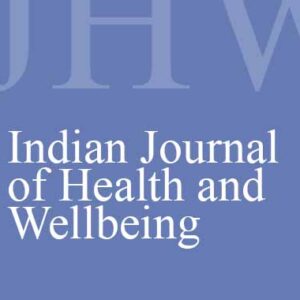Mushroom is a Resilient Food and Nutrition System For Global Health Crisis
Original price was: ₹ 201.00.₹ 200.00Current price is: ₹ 200.00.
Page: 70-75
Anita Patro1 and Sasmita Behera2 (Department of Home Science, Rama Devi Women’s University, Bhubaneswar, Odisha1 and Department of Home Science, Berhampur University, Odisha2)
Description
Page: 70-75
Anita Patro1 and Sasmita Behera2 (Department of Home Science, Rama Devi Women’s University, Bhubaneswar, Odisha1 and Department of Home Science, Berhampur University, Odisha2)
Mushrooms, recognized as a climate-resilient crop, offer sustainable solutions to global health challenges. They grow rapidly, adapt to diverse environments, and thrive on agricultural waste, making them an eco-friendly food source (Chang & Wasser, 2017). Rich in high-quality proteins, essential amino acids, dietary fibre, vitamins (B-complex, D), and minerals like selenium, potassium, and phosphorus, mushrooms contain bioactive compounds such as β-glucans, polysaccharides, and terpenoids. These compounds boost immunity, exhibit antimicrobial and anti-inflammatory properties, and help prevent chronic diseases like cancer, diabetes, and cardiovascular disorders (Valverde et al., 2015). Mushrooms, belonging to the kingdom Fungi, include cultivated genera like Agaricus, Pleurotus, Ganoderma, and Volvariella. They also help decompose organic matter, aiding soil health and bioremediation. Advances in controlled farming, substrate optimization, and genetics have boosted yield and climate resilience. Their integration into food systems supports sustainable agriculture, reducing reliance on conventional crops and promoting a circular bioeconomy (Matthews & Sokol, 2020). Mushrooms have demonstrated exceptional resilience in global crisis, including food insecurity, malnutrition, and pandemics. Their rapid cultivation cycle and minimal land and water requirements make them a viable food source during emergencies and disaster relief efforts. Additionally, mushroom-based protein alternatives contribute to sustainable diets by reducing dependency on livestock, lowering greenhouse gas emissions, and promoting climate-resilient food production (Royse et al., 2017). The medicinal value of mushrooms, particularly in traditional and modern medicine, has further positioned them as functional foods with the potential to mitigate global health burdens (Valverde et al., 2015). Recent mushroom research highlights their pharmaceutical, immune-modulating, and food-fortifying potential. Medicinal fungi like Ganoderma lucidum and Cordyceps militaris aid immunity, reduce inflammation and act as natural antivirals. Mycelium-based innovations in biodegradable packaging, sustainable textiles, and myco-protein foods expand their applications (Matthews & Sokol, 2020). With health benefits, ecological advantages, and biotechnological potential, mushrooms contribute to a sustainable food system addressing global health and environmental challenges.


